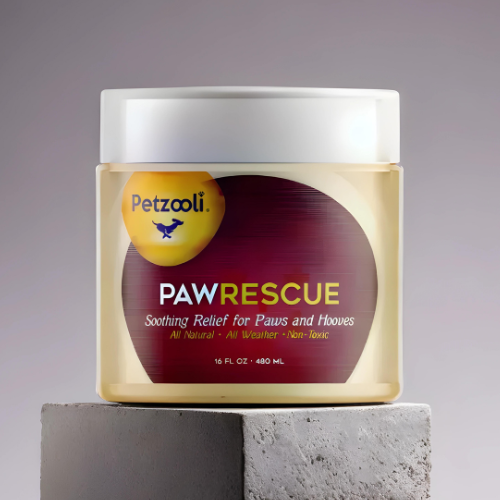
When Should My Dog Have His First Teeth Cleaning: Essential Insights for Pet Owners
Share
As a health-conscious pet owner, you may often wonder, 'when should my dog have his first teeth cleaning'? Dental health is just as important for dogs as it is for humans. Ignoring this aspect of their well-being can lead to serious health issues down the line.
Dogs, like humans, can suffer from plaque buildup, gingivitis, and even periodontal disease if their teeth aren't properly cared for. This comprehensive guide aims to provide valuable insight into the right timing for your dog's first teeth cleaning and offers tips to maintain your furry friend's dental health.

Why Dental Health is Important for Dogs
Dental health isn't just about maintaining a shiny smile for your pup. It's about ensuring their overall health. Dogs use their mouths for everythingfrom eating and playing to exploring the world around them. A dog's mouth is an entry point to the body, and poor dental hygiene can lead to infections that could spread to other parts of the body, including vital organs.
Signs Your Dog Needs Dental Care
Before we dive into when your dog should have his first teeth cleaning, its important to recognize signs that may indicate dental issues:
- Bad breath
- Discolored or broken teeth
- Excessive drooling
- Difficulty eating or chewing
- Swollen or bleeding gums
- Behavioral changes, such as irritability

When Should My Dog Have His First Teeth Cleaning?
The ideal age for a dog's first teeth cleaning varies based on factors like breed, diet, and individual health. However, a general recommendation is to have a professional teeth cleaning performed by a vet when your dog is around 1 to 2 years old. This early intervention helps to establish healthy dental habits and prevent serious dental issues from developing.
You might also want to learn about the duration of a dog's teeth cleaning to get a better idea of the process.

Breed-Specific Considerations
Different breeds have different dental health risks. For instance, smaller breeds like Chihuahuas are more prone to dental problems due to their crowded teeth. Larger breeds, while they might not have issues with overcrowding, can still suffer from plaque and tartar buildup. Consulting your vet can help tailor a dental care plan specific to your dog's needs.
Small Breeds
Small dogs tend to have more dental issues due to the structure of their mouths. They often have less space for their teeth, making them more susceptible to plaque and tartar buildup.
Large Breeds
Large breeds are not immune to dental problems. They might not face the crowding issue but can still suffer from gum disease and other dental problems if not properly cared for.

At-Home Dental Care Tips
While professional cleanings are essential, maintaining your dogs dental health at home is equally important. Here are some tips:
- Brush your dogs teeth regularly using a dog-friendly toothpaste.
- Provide dental chews and toys designed to reduce plaque and tartar.
- Incorporate a healthy diet that promotes dental health.
- Check your dogs mouth regularly for any signs of dental issues.
An effective home dental care routine goes a long way in preventing dental problems. You can understand why your dog might grind his teeth which can be related to dental health issues.
Professional Dental Cleaning: What To Expect
Professional dental cleaning for dogs usually involves a few key steps:
- General anesthesia to keep your dog still and calm.
- Thorough examination of the mouth, including X-rays.
- Scaling to remove plaque and tartar from the teeth and below the gum line.
- Polishing to smooth the surfaces of the teeth.
For more insights, you can explore the detailed process of dental cleaning in dogs by a trusted source.
The Role of Anesthesia
While the idea of putting your dog under anesthesia might be daunting, it is a crucial part of the procedure to ensure thorough cleaning and avoid any pain or discomfort for your pet. Your vet will take necessary precautions to minimize any risks.
FAQs
How often should I brush my dogs teeth?
Brushing your dogs teeth at least two to three times a week is recommended. Daily brushing, however, is ideal.
Can I use human toothpaste for my dog?
No, human toothpaste can be toxic to dogs. Always use toothpaste that is specifically formulated for dogs.
When should I start brushing my puppys teeth?
Its best to start brushing your puppys teeth as early as possible, ideally when they are a few months old, to get them accustomed to the process.
Ensuring your dog has good dental health should be a top priority. By knowing 'when should my dog have his first teeth cleaning' and following through with regular maintenance, you can help your furry friend lead a healthier, happier life.
As an Amazon Associate, I earn from qualifying purchases.
